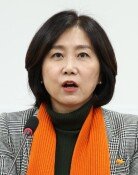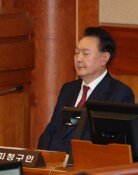Decade-long delay in pension reform debate
Decade-long delay in pension reform debate
Posted January. 25, 2025 07:32,
Updated January. 25, 2025 07:32
At a public hearing on the National Pension Act amendment held on Thursday in the National Assembly's Health and Welfare Committee meeting room, Joo Eun-seon, a professor of social welfare at Kyonggi University, argued that the reform must focus on ensuring adequate income. She suggested raising the income replacement rate (currently 40%) to 50%. On the other hand, Yoon Seok-myung, an honorary research fellow at the Korea Institute for Health and Social Affairs, countered by highlighting that the unfunded liabilities of the National Pension exceed 1,825 trillion won as of 2023. He warned that even maintaining the current 40% income replacement rate would push these liabilities to 383.9% of GDP by 2093.
Since its introduction in 1988, the National Pension has undergone reforms in 1998 and 2007 to adjust income replacement rates and other factors. Concerns over fund stability resurfaced, and in 2018, the Moon Jae-in administration submitted four reform proposals to the National Assembly, which rejected them, citing the lack of a single, unified plan. The Yoon Suk Yeol administration, which included pension reform among its four major reform priorities, proposed a single plan last September to raise the contribution rate from 9% to 13% and the income replacement rate from 40% to 42%.
Currently, the National Assembly is reviewing 29 National Pension Act amendments submitted by Health and Welfare Committee members from both ruling and opposition parties, excluding the government's plan. While there is consensus on raising the contribution rate to 13%, disagreements persist over the income replacement rate, with the ruling party proposing 42% and the opposition party advocating 44%. The ruling party also calls for structural reform to overhaul the entire pension system, including linking the National Pension with civil service and retirement pensions while adjusting contribution and replacement rates (parametric reform). In contrast, the opposition prefers to start with parametric reform under the Health and Welfare Committee’s framework.







